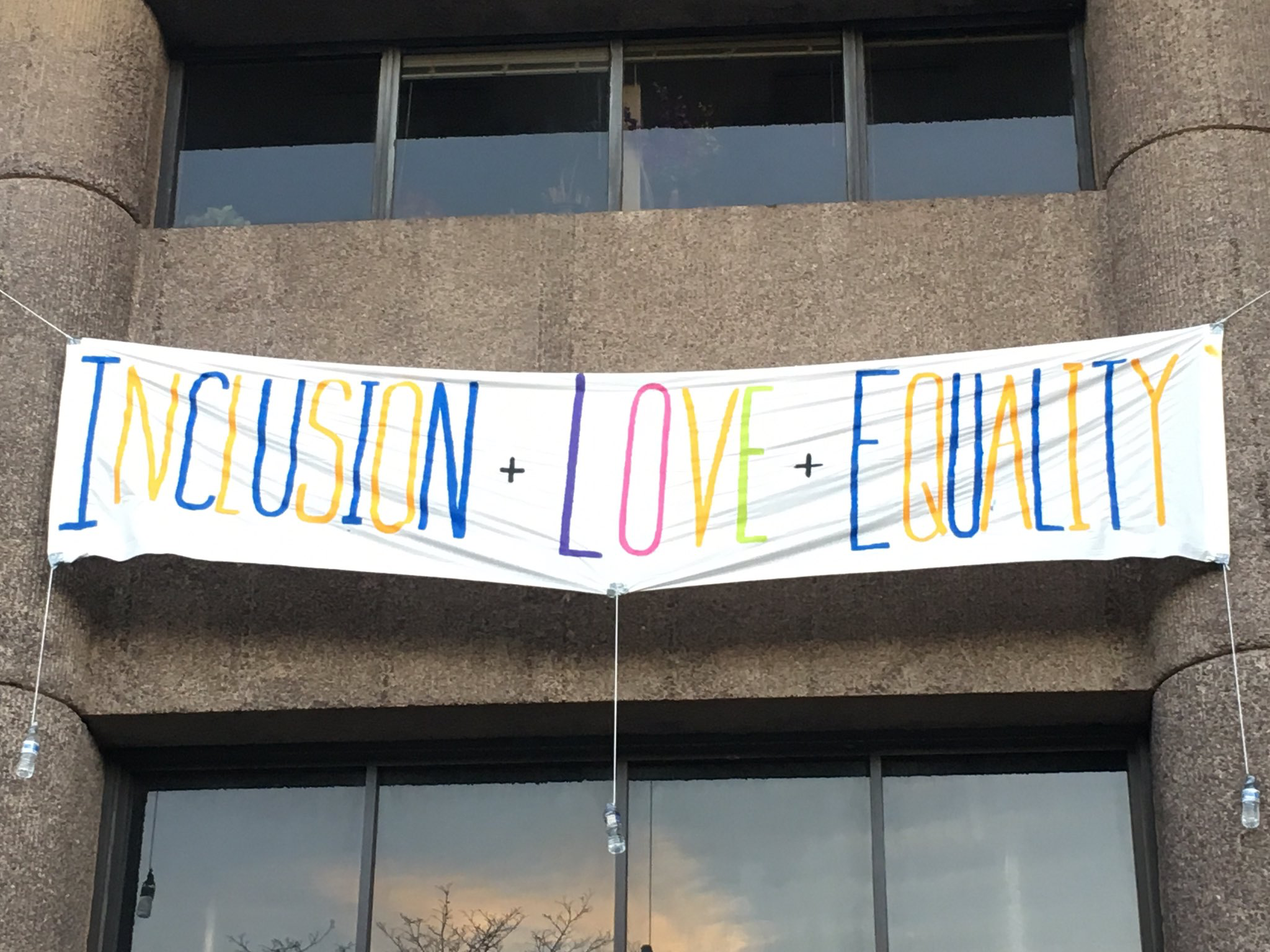By Chris Bulfinch ’18
News Editor
In the days following the election of Donald Trump to the presidency, there have been gatherings, both formal and informal, on Trinity’s campus discussing the events of the contentious presidential race.
On Nov. 9, President Berger-Sweeney sent an email to the College community entitled “Post-Election Outcome.” In the message, President Berger-Sweeney stated that “we have a civic duty to respect this process, yet we need not accept the divisiveness and incivility that this election cycle has brought to our nation and to our world.” She further reflected that while “some members of our community are pleased with the election,” there were many others who “awoke [Nov. 9] with a deep sense of fear and uncertainty.” President Berger-Sweeney reiterated that Trinity would “continue in [its] commitment to build and sustain a welcoming and affirming community for persons of all races, ethnicities, religions, nationalities, and gender identities.” The message also made mention of meetings that would be held in the following days to help the community process the results of the election. The note was signed by President Berger-Sweeney and her cabinet.
Later that same day, the first of the gatherings mentioned in President Berger-Sweeney’s email convened in the Underground Coffeehouse under Mather Hall. Dozens of students, faculty, and administrative staff were in attendance, with all seats filled and many standing around the space. Students, predominantly students of color, shared their feelings in the immediate aftermath of the election results. Many fought through tears, describing fears of discrimination, deportation, and violence that seemed increasingly likely with Trump in office.
Numerous Trinity faculty members were also in attendance, signing their names to a list establishing themselves as allies of marginalized students, whether people of color, individuals with disabilities, members of the LGBTQ community, and any other students on campus who feel threatened by the election results or any behavior stemming from them.
The next day, on Nov. 10, there was a similar gathering in the Rittenberg Lounge. Though fewer students, faculty, and staff attended, the meeting and discussion lasted well over an hour.
Other events and demonstrations of solidarity occurred across campus this week, ranging from a chalking event organized by members of the Fred to a candlelight vigil at the Chapel, hosted by Trinity’s College Democrats. Hillel hosted its annual Rainbow Shabbat at the Hillel House, celebrating both the Jewish and LGBTQ communities.
In addition to the student-run events and President Berger-Sweeney’s letter, Trinity faculty also made a decisive statement about Trump’s election to the presidency. In a letter to President Berger-Sweeney, Tim Cresswell, Dean of Academic Affairs, and Cornelia Thornburg, Chair of Trinity’s Board of Trustees, more than 100 faculty members “reiterate the non-discrimination sentiment in Trinity’s Faculty Manual,” and “the College’s broad policy of non-discrimination.”
Quoting heavily from both the Faculty Manual and mission statement decrying discrimination and encouraging equal opportunity, the letter questioned the senior Trinity administrators, asking “how is the College providing for the safety and security of students, faculty, and staff who may lose legal protections for their immigration status or face other serious problems?” The signatories ended by “suggest[ing] that the College establish itself as a ‘sanctuary center of higher education,’ committed to protecting the members of its community from unfair deportation, investigation, or other intimidation.” The letter was signed by faculty members from every discipline at Trinity College, and the number of signatories has been rapidly increasing over the weekend.
Protests have broken out across Connecticut in the wake of Trump’s victory. Students at Wesleyan took to the streets of Middletown, and protests shook New Haven over the last few days, with more scheduled for the coming week. In Hartford, 20 people participated in a “group scream” next to City Hall on Saturday Nov. 12 to express their dissatisfaction with Trump’s election.
Public protests have not been occurring on Trinity’s campus in the days since the election. Though there have been many political statements made and opinion is severely divided, the rifts and disagreements have been largely silent. Neither overt protests nor rallies have taken place on Trinity’s campus. Despite the relative quiet about the election, activism and political engagement will continue, as evidenced by the Solidarity with Standing Rock event later this week.
Trinity Addresses Campus Climate Following Election





+ There are no comments
Add yours